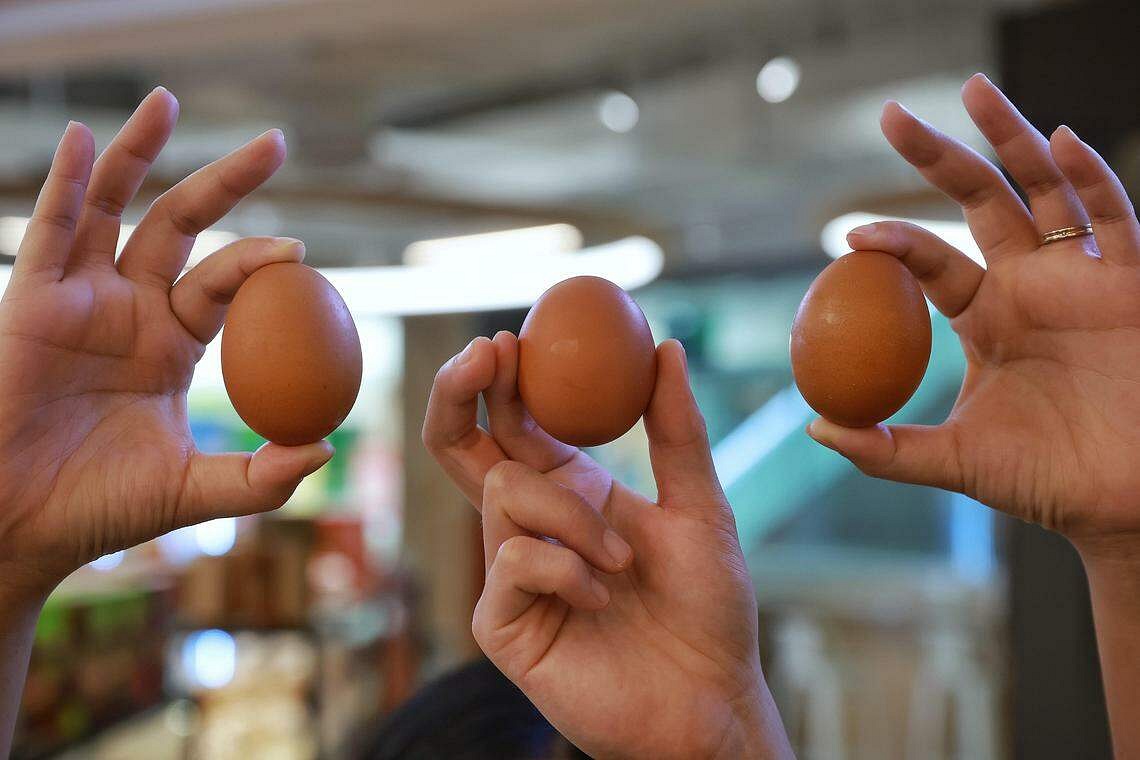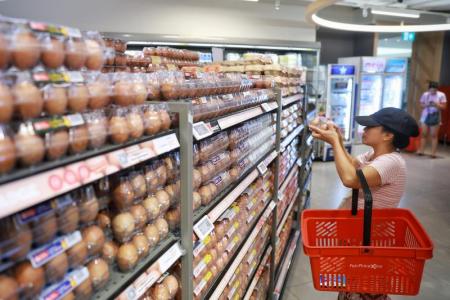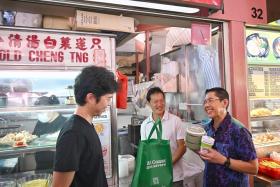FairPrice first in Singapore to sell eggs from Brunei
Eggs from Brunei are being sold for the first time in supermarkets here.
Marketed as “Farm Fresh Eggs”, they are available at 68 FairPrice supermarkets at an introductory price of $3.20 for a carton of 10, and will be progressively introduced to more of the chain’s outlets.
The price is comparable to that of eggs Fairprice imports from other countries, said Mr Tng Ah Yiam, the supermarket group’s chief procurement officer.
A check by The Straits Times on Tuesday found that a carton of 10 Pasar eggs from Malaysia costs $3.20 at FairPrice.
FairPrice is importing 200,000 eggs a week from Brunei through local egg supplier Dasoon Eggs.
Said Mr Tng: “We are very happy to be able to import Brunei eggs to Singapore… Brunei is another new source of supply (of eggs), which allows us to diversify and ensure that we can achieve supply stability and price stability as well.”
The move adds to existing efforts to ensure the Republic’s food security, added Mr Tng. Currently, FairPrice sources its eggs from 10 countries.
These countries include Singapore (which provides around half of FairPrice’s egg supply), Malaysia and Thailand, to places which are further away, like Australia and Ukraine.
One advantage of sourcing eggs from Brunei, as compared to countries outside the South-east Asian region, is the shorter shipment time required. It takes up to seven days for eggs to arrive by ship from Brunei, while shipments from Ukraine or Australia would take up to 21.
The eggs are shipped in refrigerated conditions to preserve their freshness, then “sweated” – or dried of the condensation that develops on their shells – when they move to the room-temperature environments before being sold.

In a blind taste test for the media organised by NTUC FairPrice, most participants said the Bruneian eggs were virtually indistinguishable from Singaporean and Malaysian ones visually and gustatorily.

Consumers The Straits Times spoke to had varying degrees of receptiveness to the Bruneian eggs.
Ms Gabrielle Muenkel, 42, said that she might not buy the eggs as she had concerns about the welfare of the chickens producing the Bruneian eggs. She does not normally buy eggs from FairPrice, but gets ones imported from Australia at a local organic grocer.
Said Ms Muenkel: “In Australia, there are animal welfare associations that ensure the chickens aren’t battery hens, but for the eggs from the region, there is no governing body to ensure this.” Battery chickens are kept in rows of identical cages, which are often cramped and limit the chickens’ ability to move around.
Strategy manager Emma Yau, 33, considers factors like brand familiarity and nutritional value. As she prepared meals for her seven-month-old infant, she looks for eggs with enhanced nutritional value, such as those with enriched Omega-3 content.
“If the (Bruneian eggs) were on promotion, I would consider trying them. If not, I’ll just go with what I’m familiar with,” she said.
However, Mr Chen, who only wanted to be known by his surname, said that he does not mind trying the Brunei eggs.
Said the 60-year-old engineer: “Does it really make a difference? An egg’s an egg.”
Get The New Paper on your phone with the free TNP app. Download from the Apple App Store or Google Play Store now


